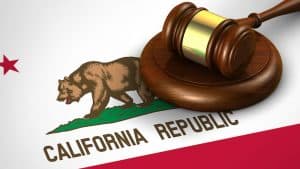We now have a few changes to the eviction restrictions in place on California landlords. This is a brief summary of newly available information and should not be considered legal advice. It appears that these restrictions apply only to residential tenancies, and that commercial evictions may proceed.
California Eviction Restrictions
AB 3088, the COVID-19 Tenant Relief Act of 2020, which continues until February 1, 2025 provides the following:
- Requires that any 3 day notice for rent due between March 1,
2020, and January 31, 2021 include a blank declaration for the tenant to fill out. If the tenant provides that declaration, under penalty of perjury, to the landlord, the tenant may not be evicted. - Does not seem to apply if the rent was in default prior to
March 1, 2020, although the courts cannot issue a summons on such an
eviction until after October 5, 2020; - A “high income” tenant (income over $100,000.00 per year) must provide additional documentation to the landlord (although there is some financial information that a landlord may not demand);
- City and county restrictions on evictions are no longer allowed;
- Mortgage companies are required to work with borrowers regarding forbearances on rental properties (although generally this is regulated federally, but most lenders should be willing to work with borrowers).
- Tenants cannot be evicted if 25% of the rent due between March 1, 2020 and January 31, 2021 has been paid.
- Evictions may still proceed based on other issues, such as
drugs or prostitution.
This bill is rather long and complex, and should be fully understood by landlords before proceeding with any notices or eviction actions. The full text of AB 3088 may be viewed here: http://leginfo.legislature.ca.gov/faces/billNavClient.xhtml?bill_id=201920200AB3088

Center for Disease Control order (which will likely become effective September 4, 2020):
The CDC has issued a restriction on residential evictions through December 31, 2020. This order requires that the tenant submit a declaration to the landlord (and provides a form) and requires that tenant
- Has attempted to obtain all available government assistance;
- Earns a yearly sum of $99,000 if an individual or $199,000 if a couple;
- Is unable to pay the full rent due to loss of work or medical expenses;
- Has made an effort to pay as much of the full rent as possible; and
- Eviction will cause the tenant to be homeless or live in close quarters.
The CDC order does not apply to eviction of tenants for cause other than non-payment of rent.
The full text of this order may be viewed here:
https://s3.amazonaws.com/public-inspection.federalregister.gov/2020-19654.pdf
It is now more important than ever for landlords to keep detailed payment histories, including the amount and date payment was received. If you are a small landlord, a simple way to keep track so to make a note of payments received on your calendar. Of course, it would be a good practice to consult with a qualified attorney regarding you particular situation.
This is a brief summary of newly available information and should not be considered legal advice or an in-depth analysis of all the new laws and rules.








